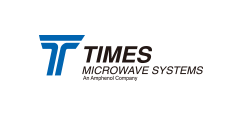Grounding & Lightning Protection for Wireless Networks Brochure
This paper will examine the characteristics of a cloud to earth strike, and the resulting probability of damage to existing wireless infrastructure. Most wireless networks rely on tall communication towers causing a statistically high lightning exposure probability. Typically, more than 2,000 thunderstorms are active throughout the world at any given moment producing on the order of 100 flashes per second. As our society becomes more dependent upon computers and communications networks, protection from system disruptions becomes essential.
The conditions necessary for a thunderstorm are warm moist air from ground level to a few thousand feet, cooler air above with little to no wind, and full sun to heat the air mass near the ground. As the heated air near the ground rises to heights where the temperature is below freezing, a thundercloud is formed. Within the thundercloud, constant collisions among ice particles driven by rising and falling air columns causes static charge build up. Eventually the static charge becomes sufficiently large to cause die air to breakdown. An initial small charge called a “step leader” breaks out seeking an ideal cloud to cloud or cloud to eardi path. Once this path is found the main series of strokes follow.
Lightning is a natural event with many unknown geographic, climatological, and electrical influences determining strike characteristics. Rf communication engineers, systems suppliers, and users, are accumulating data to understand what site configurations, lightning protectors, and grounding systems might be necessary to bypass sensitive electronics equipment and safely conduct lightning energy to earth. The following information is intended to help implement that goal.
|
|
|
|
|
|
|
Supplier and Product Introduction |
|
|
|
|
Please see the document for details |
|
|
|
|
|
|
|
|
|
|
|
English Chinese Chinese and English Japanese |
|
|
04/8 |
|
|
|
|
|
|
|
|
1.9 MB |
- +1 Like
- Add to Favorites
Recommend
All reproduced articles on this site are for the purpose of conveying more information and clearly indicate the source. If media or individuals who do not want to be reproduced can contact us, which will be deleted.


























































































































































































































































































































































































































































































































































































































































































































































































































































































































